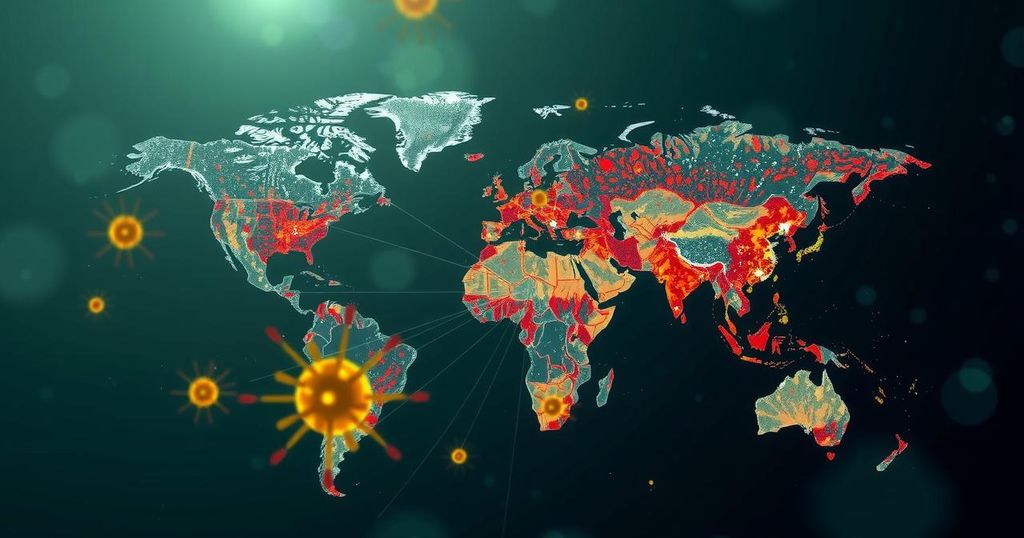Climate Change Linked to Significant Surge in Dengue Cases Globally

Researchers have identified that climate change is responsible for nearly 20% of the dengue fever cases reported this year, with rising temperatures facilitating the disease’s spread into new areas. Innovations like the release of Wolbachia-infected mosquitoes offer potential strategies for controlling dengue outbreaks, as evidenced by reduced case numbers in Brazilian cities that adopted this method. Overall, urgent action is required to address the public health challenges posed by climate change.
Climate change has been linked to nearly 20% of the unprecedented surge in dengue cases across the globe this year, as noted by researchers from the United States. These findings raise significant concerns regarding the correlation between rising temperatures and the spread of infectious diseases. As temperatures increase, the geographical range and activity of the mosquitoes that carry dengue—an illness associated with severe fever and aches—are expanding into new regions that were previously unaffected by the virus. In a recent study conducted in 21 countries spanning Asia and the Americas, it was determined that climate warming has a direct impact on the incidence of dengue fever. On average, it is estimated that approximately 19% of current dengue cases can be attributed to prior climate changes. Ideal temperature ranges for the spread of dengue lie between 20-29 degrees Celsius (68-84 degrees Fahrenheit), and projections indicate that certain elevated areas in countries like Peru, Mexico, Bolivia, and Brazil may witness a staggering rise of 200% in dengue cases over the next 25 years. Currently, more than 257 million individuals inhabit regions where climate change could double the incidence of this disease in the near future. Researchers emphasize that the alarming number of dengue cases reported—over 12.7 million worldwide as of September—may be grossly underestimated, with true figures potentially reaching closer to 100 million. In response to this growing health threat, scientists are exploring innovative solutions, such as breeding mosquitoes infected with a bacteria called Wolbachia. This bacterium inhibits the mosquitoes’ ability to transmit dengue, providing a promising approach to combatting the disease. Evidence from Brazil shows that areas where Wolbachia-infected mosquitoes have been introduced experienced significantly fewer cases than the national average during a major outbreak, suggesting that this method could offer long-term protection against dengue resurgence.
Dengue fever is a mosquito-borne viral illness that has traditionally been confined to tropical and sub-tropical regions. However, it is becoming increasingly clear that climate change is influencing the spread of this disease. With rising global temperatures, the environmental conditions necessary for dengue transmission are expanding, creating new challenges for public health. Researchers are beginning to explore the relationship between climate variability and health outcomes, aiming to develop strategies for mitigating the impact of climate-related health threats. The increasing incidence of dengue outbreaks globally calls for urgent attention to the direct effects of climate change on disease dynamics.
In summary, the link between climate change and the rise of dengue fever is becoming increasingly evident. Researchers estimate that nearly one-fifth of current dengue cases are attributable to climate change, with particularly severe impacts anticipated in areas that will reach favorable temperatures for mosquito breeding. Efforts such as the use of Wolbachia-infected mosquitoes present potential avenues for reducing the incidence of dengue, reflecting the urgent need to address the health implications of climate change comprehensively.
Original Source: www.barrons.com








